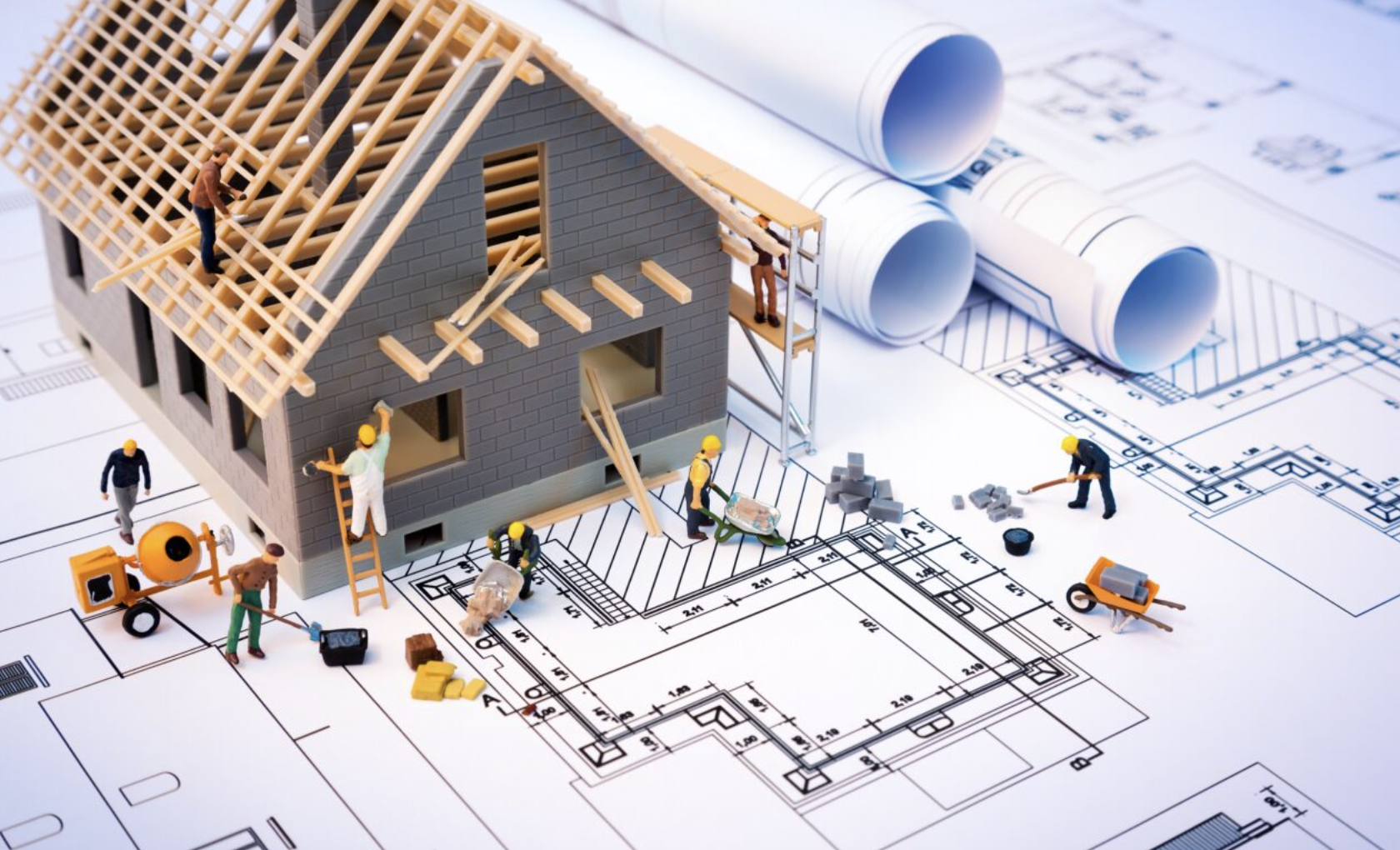NOI Real Estate: What Is It (and How to Calculate)
NOI (net operating income) is one of the fastest and easiest ways to determine whether you should buy an investment property. In this guide to NOI...
It's common for people to first become interested in real estate investing because a friend or someone they know has substantially increased their wealth after investing in real estate. At first glance, it might appear to be magic. The idea that you can invest in real estate and grow your wealth exponentially seems far fetched. However, real estate investing gives you the unique opportunity to bring in consistently high returns and create an impressive portfolio that helps you reach all of your financial goals.
Before you add any types of real estate properties to your investment portfolio, you should have a better understanding of the most common real estate investing definitions that you'll come across.
Return on Investment (ROI): When you make any type of investment, you can calculate its ROI. Let's say that you invested in a single-family home with a $50,000 down payment and collect around $5,000 per year in rents after all expenses have been paid. In this scenario, your cash-on-cash return would amount to 10%. Before you invest in any piece of real estate, it's possible to calculate your estimated returns, which will help you determine if the investment is worth it.
Cash Flow: This is a simple real estate investment term that involves the monthly income you obtain from collected rents once your mortgage payment and expenses have been paid. When looking at the example mentioned above, your cash flow would be around $416 per month for a single property. The cash flow you accrue over time is the most integral component towards replacing the main source of income that you currently bring in. Whether you currently have a job or are retired, the cash flow you obtain from rents shows up all the same.
Net Operating Income (NOI): Your net operating income refers to the income you receive after all operating expenses are removed from the equation. This formula is used to calculate how profitable a specific investment is. It works by adding up all of the income your property makes before subtracting every general expense. Your income can include everything from the rents you receive to the money you make from a coin laundry machine. As for operating expenses, they include maintenance fees, professional management, and insurance.
Cap Rate: This term is your ROI in the event that you paid for your investment property in cash. The calculation is annual net operating income divided by the purchase price of your home. If you have a cash flow of $10,000 per year and a purchase price of $100,000, your cap rate would be 10%.
Before delving into how real estate investments help you gain financial freedom, you should first understand what financial freedom entails and how it can help you lead a more comfortable lifestyle. Gaining financial independence means making payments on time or having enough money to never stress about debt.
When you've obtained this type of freedom, you'll likely have paid off all of your outstanding debts. You should also have enough money after paying bills every month to grow your retirement savings or increase the amount you invest in real estate. Real estate has proven to be among the best investments you can use to reach financial freedom.
If you want to rapidly grow your wealth in a relatively short period of time, there are many real estate investing techniques you can use to achieve your goals. The primary method of reaching financial freedom is to build consistent cash flow through monthly income and other techniques. You need to take the IDEAL approach!
I: Income you receive every month. The money that remains after you pay expenses is your cash flow. Having a high cash flow allows you to gain financial freedom or make large contributions to your retirement savings.
D: Depreciation is a highly advantageous tax benefit that occurs when you own rental properties. Begin by dividing the price of your home by 27.5 years. The result is the amount of money you can deduct from your taxable income every year.
E: Equity you can build up. Any tenant who lives on your property will effectively pay down the loan you took out to purchase the property. Over time, your equity will increase.
A: Appreciation. While property values can decrease on a short-term basis, they invariably increase over time. In 2022, global housing prices increased by around 6%. When the markets are stable, home values in the U.S. typically increase by 4% each year.
L: Leverage is essential for expansive growth. Your investment returns are able to rise rapidly because of leverage. When you add a real estate property to your investment portfolio, you'll only need to pay a small percentage of the sale price to buy the property. The remainder of the sale price is paid by your lender. However, you'll be able to take advantage of all income and tax benefits.
For instance, let's say that you invest $40,000. In the event that you put this money into stocks, you'll only be investing $40,000. If your stock portfolio were to grow by 5% every year, you would have $42,000 after one year, which results in a 5% return. Instead, you could choose to put the same amount of money into a piece of real estate. You could borrow $160,000 to buy a $200,000 home. If the home increases in value by around 5% in the first year, it will now be worth $210,000. You would then have around $50,000 in equity, which is an actual return of 25%.
At the same time, your rental property could produce around $400 per month in total cash flow, which equates to $4,800 per year and a 12% return on your initial investment. When you add all of these factors together and take advantage of the tax benefits at your disposal, your return can be much higher than it would with other investment types. When solely taking the income into account, you would earn more than the 10% annual return that's historically occurred with the stock market. It's all based on math, not magic.
Real estate investing is the perfect way to grow your wealth quickly. However, there are some common mistakes that you should do your best to avoid early on.
Likely the most significant mistake real estate investors make is paying too much for a property they've fallen in love with. Whether the property you're interested in has great curb appeal or upscale amenities, the key to obtaining high cash flows is not paying more than the property is worth. Since you aren't going to live there, you shouldn't base your decision on emotion. Instead, focus on the data behind the property. When you estimate returns, is the property worth the investment?
Since your returns depend on the upfront investment you make, buying the property at the right price is essential. If you overpay by $25,000-$50,000, it will take much longer for you to make your money back and increase your portfolio worth.
Before you apply for a loan, make sure you ask the right questions to the loan officer you work with. If you wait until the last minute to apply, it's easier to make a mistake. Let's say that you're shopping around and find a fantastic loan that provides you with 30-year amortization as well as a fixed rate of 4%. If you send in your application a few weeks before the purchase contract's drop-dead date but the application is denied because you didn't meet the lending requirements, you may be required to back out of the deal. Work closely with your loan officer to ensure mistakes like this don't happen.
If you're buying an investment property for the first time, you might not be confident about what you're looking for. There are some questions that you should have answers to before you start searching for an investment property. For instance, make sure you know how long you want to hold onto the property. You should also set a limit to the amount you'll put into renovations once the sale goes through. Do you intend on hiring a property management company to oversee the property for you? Once you have answers to these questions, you can set clear objectives.
If you're set to perform a fix and flip investment, you'll need to keep a close watch over your renovation budget to keep expenses from getting out of control. House flippers often make the mistake of underestimating what the repair costs will amount to, which can significantly reduce profits and make it more difficult to perform renovations on time. You can keep this risk at bay by hiring a reputable contractor and receiving an accurate quote before any renovation work takes place.
It's also highly recommended that you focus on performing upgrades and renovations that increase the property's value. For instance, bathroom and kitchen renovations usually add the most value to a residential property.
Being an effective real estate investor means understanding the market. Whether you invest in single-family properties or multifamily real estate, you must take current trends into account when making investment decisions. For instance, by the end of Q1 2023, single-family rental prices had risen from around $2,100 to $2,330.
Even though housing inventory has increased by around 75% year-over-year, demand remains higher than supply, which has resulted in prices going up. As an investor, you have the opportunity to increase rents slowly as property values rise. By monitoring the broader market, you can avoid raising rents too quickly or paying too much for an investment property.
Determine how much money you need to retire or live comfortably. We work hard to help our clients reach their financial goals. Obtaining this freedom through real estate investing alone might seem impossible. However, it all comes down to math. Let's say that your current annual salary is $85,000 and you want your investment to replace this income entirely. You would need to replace monthly income of just over $7,083.
If one rental property provides you with cash flow of $500 per month, you could cover your entire income once you purchase around 14 investment properties. If you purchase two investment properties every year, you will have full financial independence in just seven short years. When you eventually pay off these properties, your income would increase substantially. Now that you know the magic of real estate, start forging your own path to financial freedom.

NOI (net operating income) is one of the fastest and easiest ways to determine whether you should buy an investment property. In this guide to NOI...

1 min read
Investing in real estate isn't something that involves using just one strategy. The best strategy for you depends on the type of investor you are and...
There are so many terms that get thrown around when evaluating rental properties. For some they are second nature, but for others they are the...